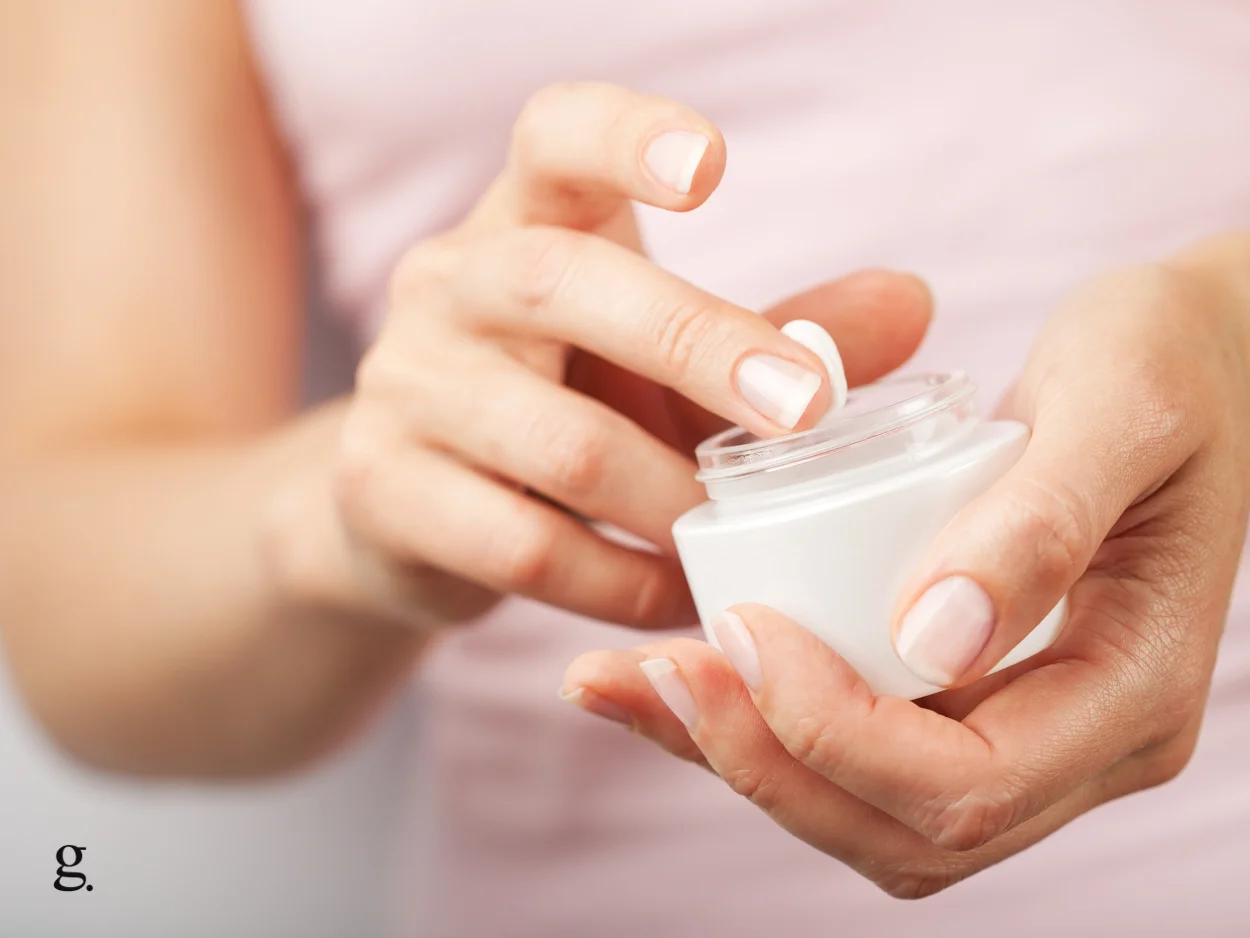Probiotic skincare – it’s all the rage these days, and for good reason. These beneficial bacteria aren’t just for your gut anymore; they’re making their way into the beauty world, too. If you’ve ever found yourself wondering what all the fuss is about, you’re in the right place.
What Is Skin Microbiome?
Before delving into probiotic skincare, it’s essential to get familiar with the concept of the skin microbiome. The skin microbiome refers to the vast community of microorganisms, including bacteria, fungi, and viruses, that call your skin home. Sounds a bit icky, right? But fear not, because these microscopic inhabitants actually play a crucial role in maintaining the health and appearance of your skin.
The skin microbiome acts as a protective barrier, shielding your skin from harmful pathogens, and keeping its pH balanced. It also helps regulate inflammation, supports wound healing, and even plays a part in maintaining the skin’s hydration levels. In short, these tiny critters are your skin’s best friends, working tirelessly to keep it looking and feeling its best. So, when it comes to skincare, it’s all about keeping this delicate ecosystem in check, which is where probiotic skincare comes in.
How Probiotic-based Skincare Products Work
Now that you’re up to speed with the skin microbiome, let’s talk about probiotic skincare products and how they work their magic. Probiotic skincare products are formulated with live microorganisms, or their byproducts, which are beneficial for your skin. These products aim to support and enhance the skin’s microbiome, helping to maintain balance, promote a healthy environment, and ultimately improve the overall appearance of your skin.
When applied topically, probiotic skincare products can:
- Reinforce the skin’s natural barrier: By nourishing and supporting the good bacteria on your skin, these products can strengthen the skin’s protective barrier, making it more resilient against environmental stressors, pollutants, and irritants.
- Balance the skin’s pH: Probiotics help to maintain a slightly acidic environment on the skin, which is essential for preventing the growth of harmful bacteria and promoting optimal skin health.
- Reduce inflammation: Certain strains of probiotics have anti-inflammatory properties that can help to calm irritation and redness, which is particularly beneficial for sensitive or acne-prone skin.
- Hydrate and nourish: Probiotic skincare products often contain additional ingredients like prebiotics and postbiotics that help to nourish the skin, providing essential nutrients and keeping it well-hydrated.
Remember, not all probiotic skincare products are created equal. To get the most bang for your buck, look for products with well-researched strains of probiotics, as well as a mix of prebiotics and postbiotics, to support the skin’s microbiome in the most effective way possible.
Microbiome Skincare Ingredients To Look Out For
Navigating the world of probiotic skincare can be a bit overwhelming, but fear not – we’ve got your back. When it comes to active ingredients, here are some top-notch probiotic players to look for when choosing your next skincare product:
- Lactobacillus: This is one of the most common strains of probiotics found in skincare products. Lactobacillus can help to soothe and calm irritated skin, reduce redness, and even help with acne. It’s often found in cleansers, serums, and moisturizers.
- Bifidobacterium: Another popular probiotic strain, Bifidobacterium is known for its anti-aging properties. It can help to improve skin elasticity, reduce the appearance of fine lines and wrinkles, and promote a more even skin tone.
- Streptococcus thermophilus: This strain has been shown to help increase the production of ceramides, which are essential for maintaining the skin’s barrier function. Streptococcus thermophilus can be particularly beneficial for dry or sensitive skin types.
- Saccharomyces: A type of yeast, Saccharomyces is often used in skincare products for its antioxidant and anti-inflammatory properties. It can help to protect the skin from environmental damage, calm redness, and even brighten the complexion.
- Prebiotics: While not technically probiotics, prebiotics are crucial for supporting the health of your skin’s microbiome. They act as food for the good bacteria, helping them thrive and maintain balance. Look for ingredients like inulin, fructooligosaccharides (FOS), and galactooligosaccharides (GOS).
- Postbiotics: These are byproducts of probiotic fermentation, and they can provide additional benefits for your skin. Postbiotics may include enzymes, peptides, and organic acids that can help to soothe, hydrate, and brighten the skin.
Keep an eye out for these probiotic all-stars when shopping for skincare products, and you’ll be well on your way to a healthier, happier complexion.
Probiotic Skincare Products Vs Regular Skincare Products
It’s time to put probiotic skincare products to the test – how do they stack up against regular skincare products? Let’s break down the key differences between the two:
Focus on the microbiome
The primary distinction between probiotic skincare and regular skincare lies in the former’s focus on supporting and nurturing the skin’s microbiome. While regular skincare products often target specific skin concerns, such as acne or dryness, probiotic skincare aims to create a healthy environment for the skin’s microorganisms to thrive, addressing the root cause of many skin issues.
Protective and preventative
Probiotic skincare products are designed to strengthen the skin’s natural barrier and maintain balance, making them excellent at protecting and preventing potential skin problems. Regular skincare products, on the other hand, may focus more on treating existing issues rather than preventing them.
Gentle and soothing
Probiotic skincare products are generally gentle on the skin, making them suitable for all skin types, including sensitive skin. Their anti-inflammatory properties can help to soothe and calm irritated skin, whereas some regular skincare products may contain harsh ingredients that could aggravate sensitivities.
Holistic approach
Probiotic skincare products take a more holistic approach to skin health, addressing the overall well-being of the skin rather than targeting isolated concerns. Regular skincare products may provide more targeted treatments for specific issues but may not address the skin’s overall health in the same way.
Compatibility
Probiotic skincare products can be easily integrated into your existing skincare routine and may even enhance the effectiveness of other products. By contrast, some regular skincare products may not be as compatible with one another, potentially causing irritation or reducing their efficacy when used in combination.
Ultimately, the choice between probiotic skincare products and regular skincare products will depend on your individual skin concerns and preferences. If you’re looking to support your skin’s microbiome and take a more holistic approach to skincare, probiotic products might be the perfect addition to your beauty regimen.
The Downside of Probiotic Skincare
While probiotic skincare has plenty of perks, it’s important to acknowledge that there may be some downsides or limitations to consider as well.
Limited research is one of the main concerns. Although there is growing interest in the field of probiotic skincare, it’s still relatively new, and more research is needed to fully understand the long-term benefits and effectiveness of these products. Some strains of probiotics have been well-studied, but others may not have as much scientific evidence backing their claims.
Potency and stability are also crucial factors. The effectiveness of probiotic skincare products can be influenced by the potency and stability of the live microorganisms they contain. Factors such as temperature, light exposure, and shelf life can impact the viability of the probiotics, potentially reducing their benefits. It’s essential to look for products that use stable, well-researched strains and follow proper storage guidelines to ensure maximum efficacy.
Lastly, potential reactions should be taken into account. Although probiotic skincare products are generally gentle and suitable for most skin types, some individuals may still experience reactions or sensitivities to specific ingredients. It’s essential to patch-test any new product and consult with a dermatologist if you have any concerns.
Despite these potential downsides, probiotic skincare can still offer many benefits for a wide range of skin types and concerns. It’s all about finding the right products, understanding their limitations, and using them as part of a balanced skincare routine tailored to your individual needs.
In Summary
It’s clear that this innovative approach to skincare is making waves, thanks to its focus on nurturing and supporting the skin’s microbiome. From soothing inflammation to reinforcing the skin’s natural barrier, probiotic skincare products offer a multitude of benefits for various skin types and concerns.
While it’s essential to be aware of the potential downsides and limitations, such as limited research, potency, and stability concerns, and individual results, probiotic skincare can still be a valuable addition to many beauty routines.
Of course, they’re not designed to replace regular skincare products but rather be used in conjunction with them.
With the right products and a balanced approach, you might just find that probiotic skincare is the secret ingredient your complexion has been craving. So go ahead, give it a try, and embrace the power of probiotics for happier, healthier skin!

